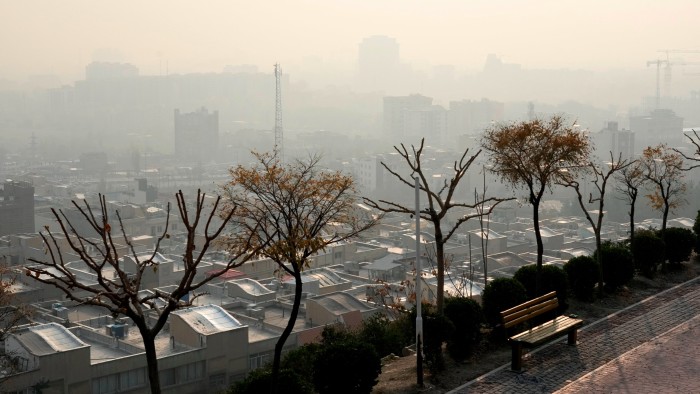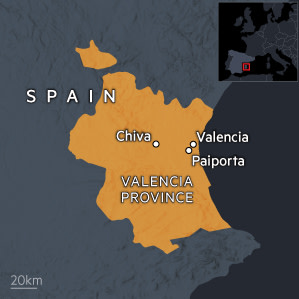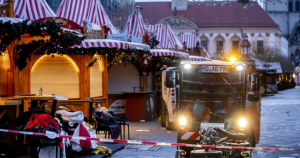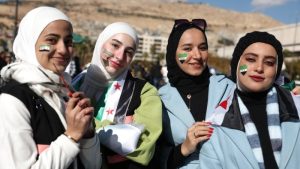Iran imposes city shutdowns over smog and energy shortages

Unlock the Editor’s Digest for free
Roula Khalaf, Editor of the FT, selects her favourite stories in this weekly newsletter.
Iran has shut down schools, banks and institutions across a dozen provinces for three consecutive days as the country struggles with deteriorating air pollution and a critical shortage of energy.
Many provinces have been experiencing freezing temperatures and heavy snowfall, with the cold snap trapping pollution in cities including the capital Tehran, which has been engulfed by a thick layer of smog.
Local governors have cited “cold weather and energy consumption management” as the reason for the large-scale shutdowns, with temperatures dropping as low as minus 20C in some places in northeastern Razavi Khorasan province on Sunday night.
The subsequent surge in heating demand has forced the government to restart rolling power blackouts amid alarming fuel shortages that threaten the oil-rich country.
President Masoud Pezeshkian and his administration officials have launched a campaign calling on the public to reduce household temperatures by two degrees to ensure there will be enough gas to last through winter.
Gas consumption in homes, businesses and small industries hit a record high of 640 million cubic metres in the past 24 hours, registering an increase of 18 per cent compared with the corresponding period of last year, according to Tasnim news agency.
The gas crunch adds to the growing list of strains on Iran’s economy. The country is one of the world’s biggest oil and gas producers, but has been plagued by significant energy shortages caused by years of US sanctions and chronic under-investment in power infrastructure.
The government is also under pressure internationally. The sudden overthrow of Bashar al-Assad’s regime in Syria and the impending return of Donald Trump to the US presidency have weakened Iran’s currency to a record low. During Trump’s first presidency, he waged a campaign of “maximum pressure” on Iran and reimposed tough sanctions over its nuclear programme.
Pezeshkian called on Iranians to work together to resolve problems facing the country rather than relying on him alone to shoulder the burden. “Together, we can overcome difficulties by joining our hands,” he said in public comments on Monday.
The Islamic republic has been anxious not to stir up public unrest. Pezeshkian, who campaigned on a platform of broader social freedoms, has so far resisted enforcing a new hijab law passed by the hardline parliament that proposes tougher penalties on women defying the mandatory dress code.
There is a lot of uncertainty about the fate of the hijab legislation, but Ali Rabiei, the presidential aide for social affairs, said Pezeshkian had “placed enforcement of the law on the agenda of the Supreme National Security Council in light of [potential] social repercussions”.
#Iran #imposes #city #shutdowns #smog #energy #shortages






